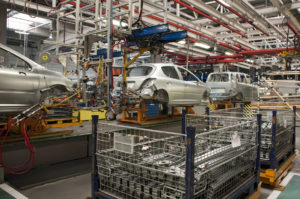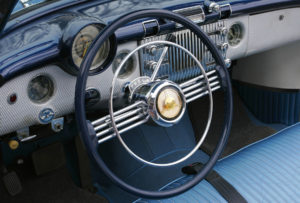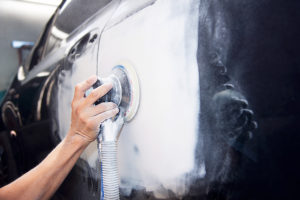Automotive Humidity Control Specialists
The automotive industry requires precise air quality control requirements when producing cars or any automotive components. Without these controls, the risks of manufacturing errors caused by extremes of humidity or even condensation are at increased risk.
Some of the issues seen within the automotive industry over the years include:
- Battery Production – The move is now to ever-increasing numbers of electric vehicles, whether entirely electric or hybrid models. The battery technology associated with this drive to electric power involves the use of Lithium as a component, and the production of the batteries is undertaken in very low dewpoint (low humidity) environments with a working condition of less than 1%RH. Systems are installed to assist in this process and are readily available to the automotive industry.
- Environmental Chambers – Product development often requires artificially created environments to replicate the effects of driving in extreme conditions. Often conditions lower than -60 to -700C are necessary, and dehumidification removes the risk of the freezing air affecting other components.
- Glass Production – It is imperative to ensure that laminated windscreens and other glass parts contain no moisture when bonded. Any trapped molecules can lead to explosive conditions inside the autoclave.
- Tyre Production – Ensuring that the steel wires used in the radial-ply in tyres are free from corrosion ensures the best quality product and a safe journey home.
- Paint Shop Issues – With the move away from solvent-based paints, the ambient humidity affects modern water-based finishes, which vary from season to season. It leads to different drying periods in summer compared to winter and the risk of bottlenecks in production.



- Drench Testing – Prestige Cars are often ‘drench tested’ in a facility designed to check for water ingress from all directions, using de-ionized water. Following such a drench test, the vehicle is dried out using high velocity heated and dehumidified air to remove all traces of water.
- Injection Moulded Parts – Summer conditions can create condensation on the cold moulds in injection moulding plants. This can lead to blistering or staining on the moulded item, leading to re-work, a slowing down in production rates and potential failure to meet JIT deadlines.
- Corrosion – Stored parts are susceptible to atmospheric corrosion if the humidity is uncontrolled. Causing a significant problem where inventory levels are high to meet anticipated demands for these spares, be they body panels or other ferrous components.
- Trim Pieces – Often produced by sub-suppliers on a JIT basis, variable humidity levels can create issues with drying adhesives on leather trim panels, for example, made with non-solvent based adhesives.
- Car Storage – Not necessarily connected with new motor manufacture, classic and valuable cars can be simply protected against damage by corrosion and mould by installing a dehumidification system. These systems are used by private individuals and commercial car storage facilities.










